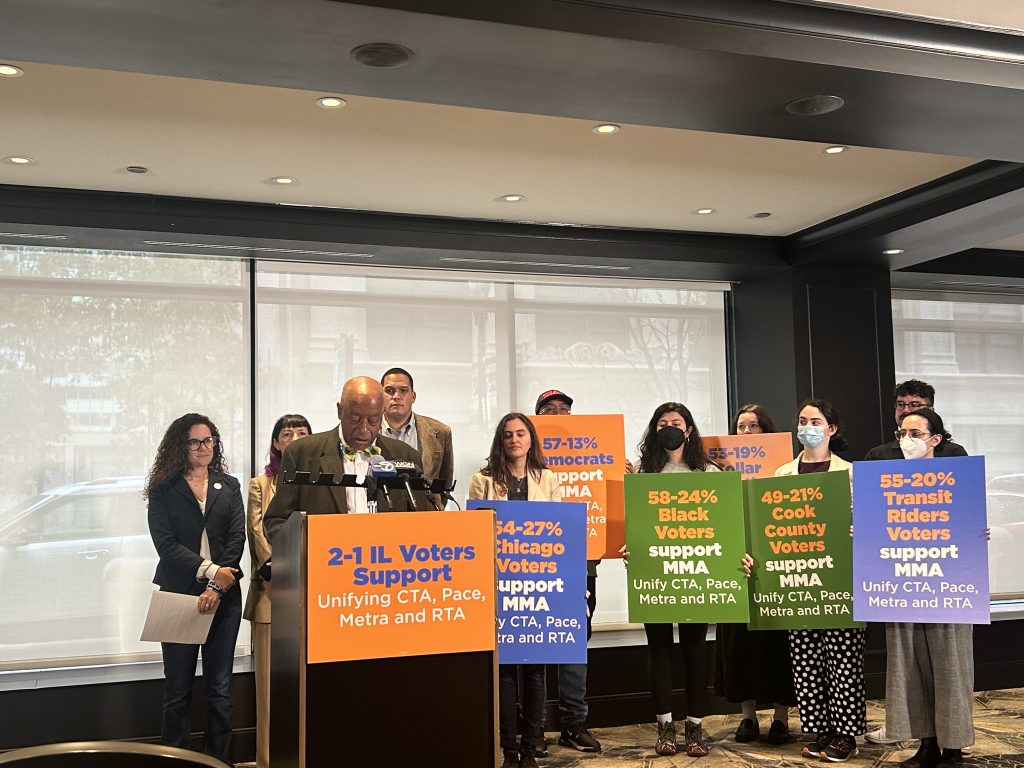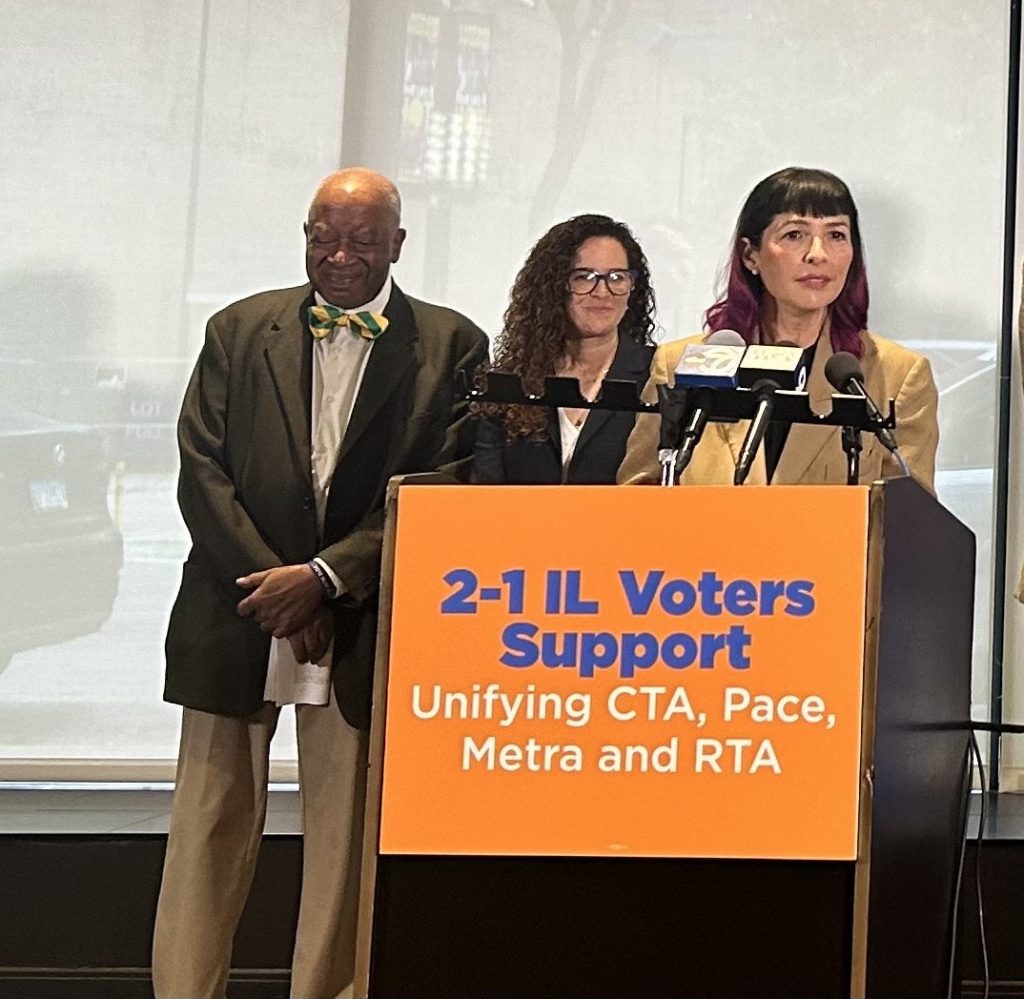Illinois voters have expressed a clear preference for unifying the Chicago Transit Authority (CTA), Regional Transportation Authority (RTA), Metra, and Pace into a single agency.
A recent poll reveals that this initiative is favored by a 2-to-1 margin statewide, with even stronger backing in the Chicago area.
The proposed legislation, known as the Metropolitan Mobility Authority Act (MMA), aims to streamline these four agencies into one cohesive entity.
This transformation promises to save up to $250 million annually by eliminating redundant efforts and could lead to increased state investment.
By integrating services, the MMA seeks to offer safer, more frequent, and better-coordinated transit options. Imagine a future where a single app and fare system simplifies your journey to work, school, or leisure activities.
This week, Active Transportation Alliance gathered with lawmakers and other advocates for a news conference to discuss the rock-solid public support that polls reveal for streamlining the agencies.
ADDRESSING FINANCIAL CHALLENGES
At the news conference, State Representative Mary Beth Canty echoed sentiments of many who see the unification as a necessary step toward improving public transportation: “Riders and taxpayers are demanding cleaner, safer, and more frequent transit services. The current fragmented system hampers regional connectivity.”
The urgency of this reform is underscored by looming financial challenges. W. Robert Schultz III, a campaign organizer for the Active Transportation Alliance (pictured speaking, below), described how local transit agencies face a $730 million funding shortfall in 2026 as federal pandemic funds deplete.
In addition to a looming fiscal cliff, Schultz said local transit services have been cut in the past decade due to underfunding.
“That lack of funding means CTA and Metra are behind their sister agencies in other states in recovering from the pandemic,” he said. “It’s why nearly half of Chicago voters give CTA a negative rating. Too often, buses and trains are not on time, not clean, and sometimes not as safe as they can be. We have a responsibility to do better.”
Currently, Illinois lags behind states like Pennsylvania and Massachusetts in transit funding, covering only 17% compared to their 40-50%.
State Representative Eva-Dina Delgado (top photo) said that unifying the transit agencies is crucial for securing increased state funding and delivering better service.
“The companion appropriation bill to the MMA calls for $1.5 billion in annual funding to not only solve the transit funding cliff coming in 2026, but to vastly improve the frequency, reliability, interconnectedness, and safety of public transit in Northern Illinois,” she said.
PUBLIC SUPPORT FOR REFORM
The poll results are compelling: 72% of voters support unification to cut wasteful spending, including $2 million spent annually on lobbyists by CTA, Pace, Metra, and RTA to maintain the status quo.

“I doubt that riders or taxpayers want millions of public tax dollars spent on lobbyists lobbying for the failed status quo,” said State Senator Robert Peters. “It’s time for change that delivers world-class public transit and attracts more riders.”
As discussions continue, voices like Jeremy Cuebas’s bring personal experiences to light. A regular user of Metra and CTA, Cuebas shares his frustrations with inconsistent service and delays that disrupt daily life: “There are good days and bad days,” he said. “The bad days consist of being late for work because of service delays and transfers from Metra to CTA that are hit or miss.”
The message from Illinois voters is clear: they are ready for a unified transit system that meets their needs efficiently and effectively. The Metropolitan Mobility Authority Act represents a promising step toward achieving this vision.

